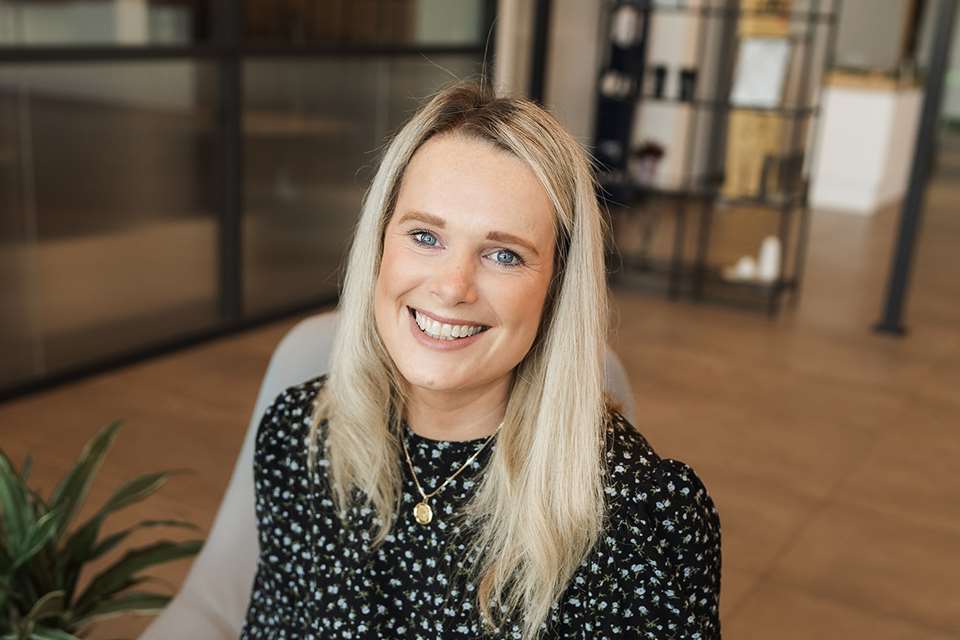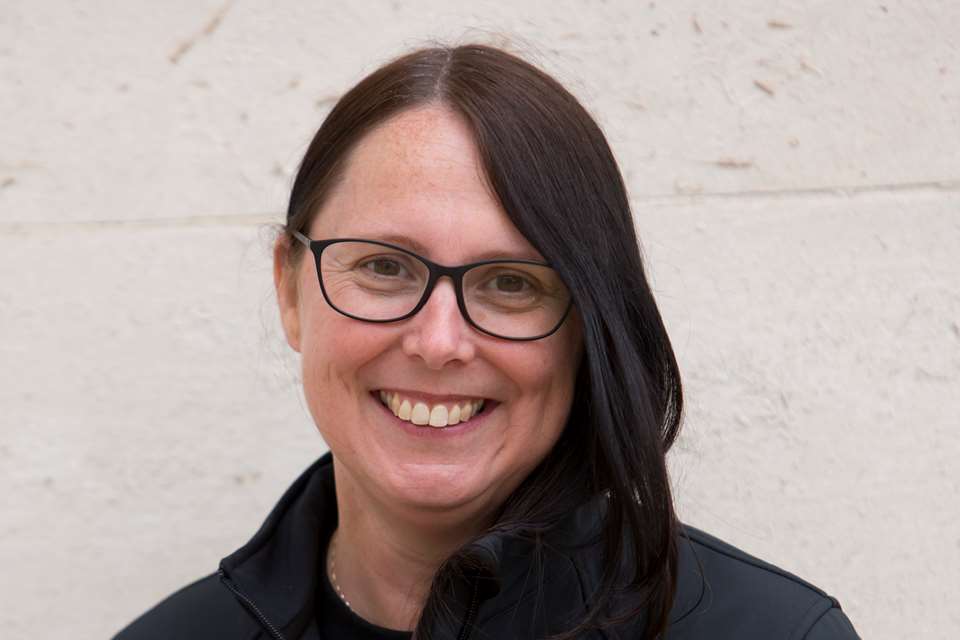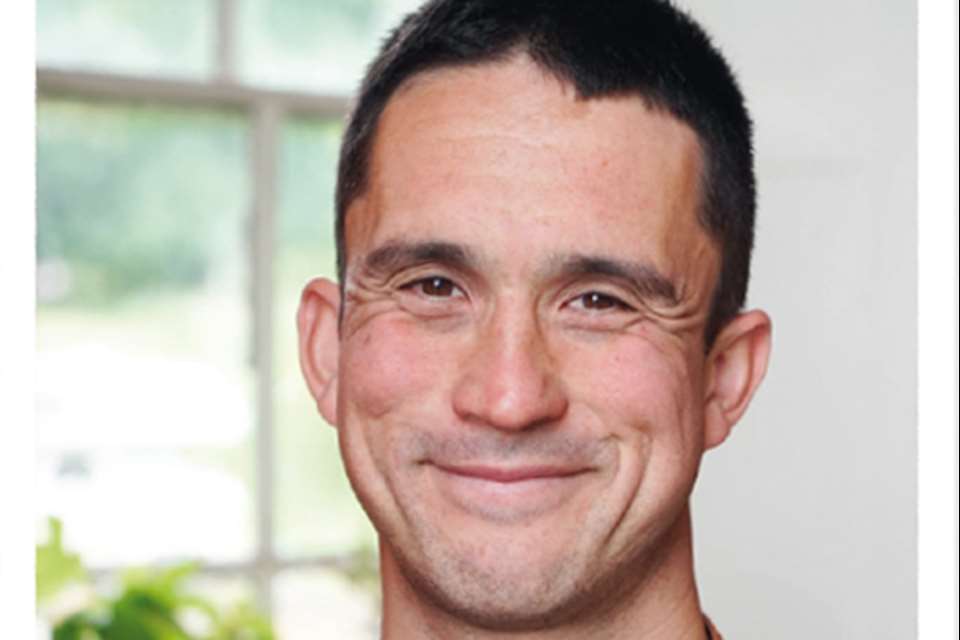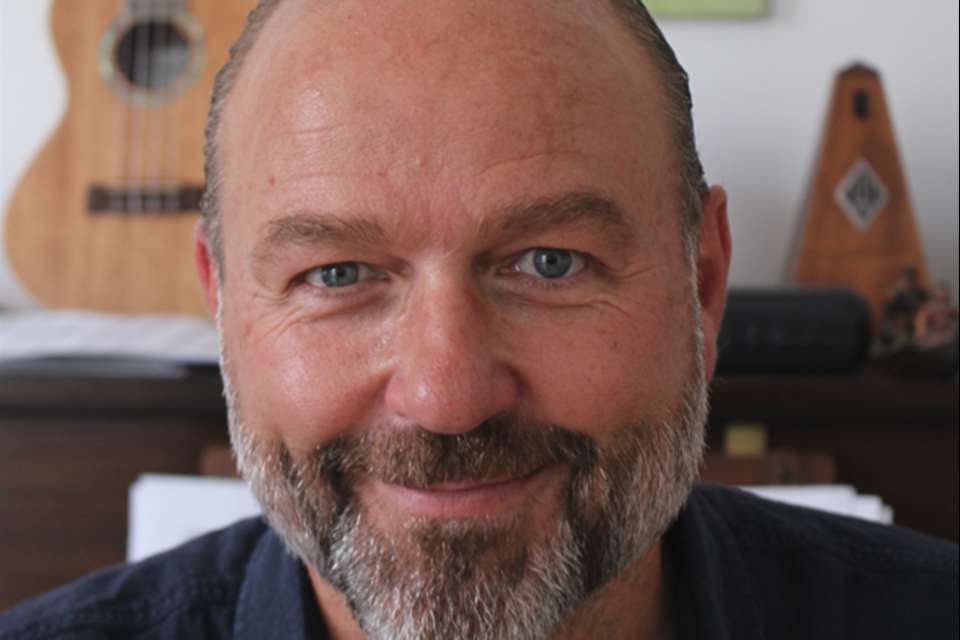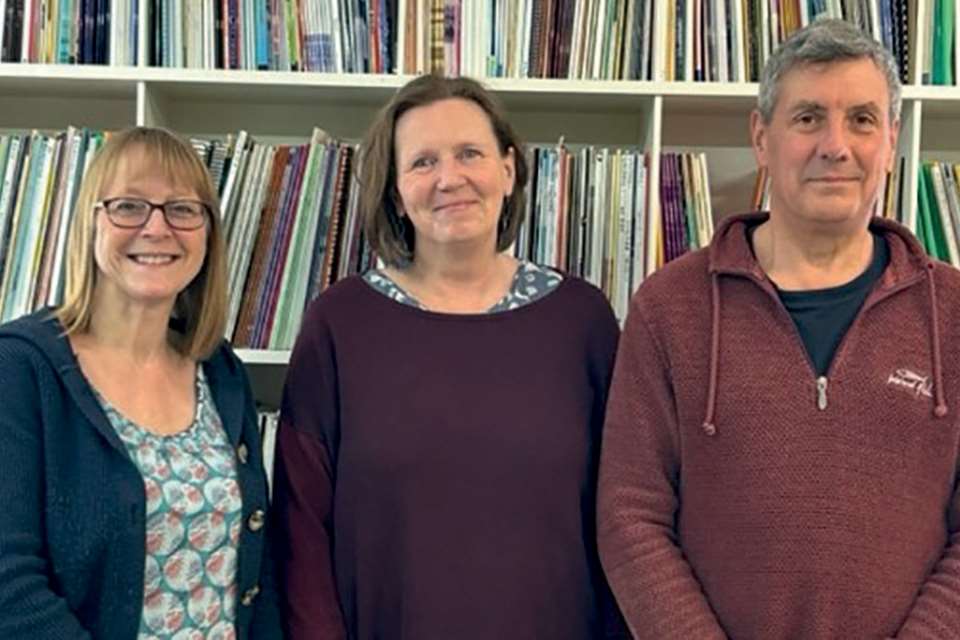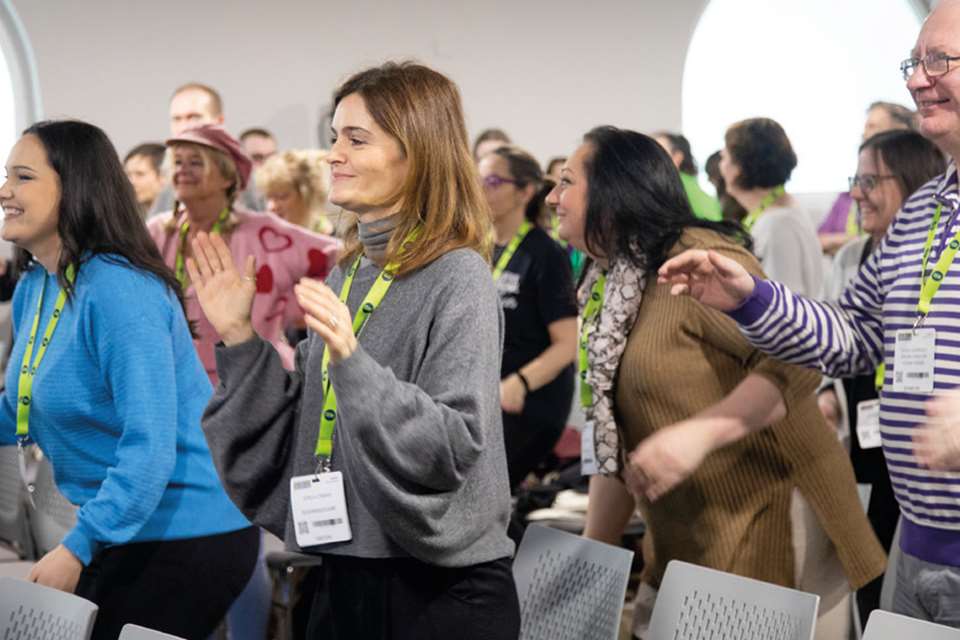MDEE 2024 report: the ecology on full display
David Kettle
Monday, April 1, 2024
David Kettle reflects on policy, AI and other important topics covered at this year's Music & Drama Education Expo.
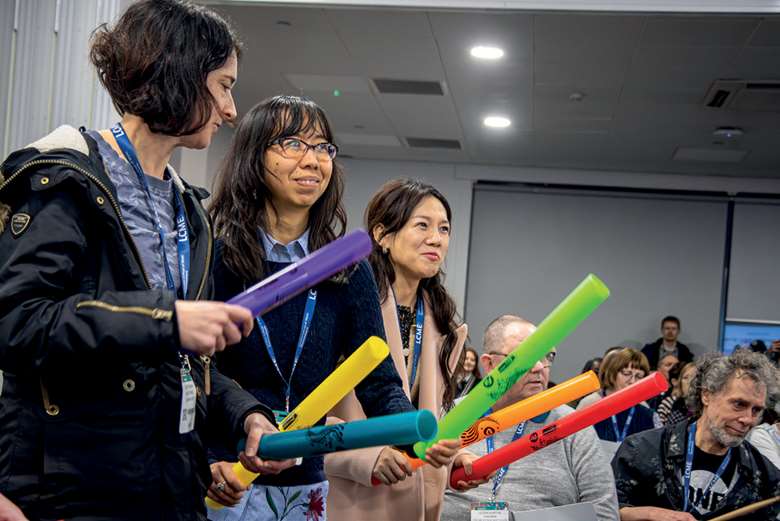
Jamie Hodgskin
Visitor numbers were up, sessions and talks were often standing-room-only, and exhibitors' stands were bustling too. There was a definite buzz in the air at this year's Music & Drama Education Expo. Driving all the activity, however, was the evident enthusiasm of teachers and educationalists themselves – whether they were visiting or presenting – and their own desire to learn, rethink, challenge themselves. That might sound a bit self-congratulatory, but it's worth acknowledging: surely nobody would want those qualities to get overlooked or taken for granted. But alongside teachers, it felt like the whole ecology of music education was represented – from industry organisations through to technology companies, publishers to researchers. And, of course, the two days provided a welcome opportunity to meet old friends across disciplines, offer support, maybe offload the odd rant or two, certainly discuss new ideas and fresh perspectives.
Spoilt for choice
If it felt like a busy Expo, it might have been a long-awaited proper re-emergence after the lingering effects of the pandemic. ‘It still felt like we had the cloud of Covid hovering over us even last year. A lot of people said to me that this year's Expo felt like a bit of a rebirth’, said Michael Pearce, Head of Content (Music) for this year's show. He's the man behind putting the CPD events together. It's a complex task that, perhaps not surprisingly, takes around nine months. ‘We put out a call for session proposals, and also invite people to apply to be on the Expo advisory board, which is reappointed every year’, Pearce explained. He sifts through suggestions for talks and workshops himself, but these are also run past the expert panel. ‘We end up commissioning a few sessions, but the vast majority came from proposals.
And then we try and put the jigsaw together – which, of course, is an almost impossible task.’ There are many factors to consider: a balance of topics, levels, musical genres; appropriate spaces to hold each of them; and avoiding clashes that might force visitors into hard choices about what to see. ‘We also try to think about a thread through the day for individual visitors – so, if you're a primary teacher, for example, what might your journey through the Expo feel like?’ As well as higher visitor numbers, Pearce was pleased to receive so many proposals for sessions and talks: ‘If we'd had the time, we probably could have put together an Expo over four or five days’.
Most gratifying among the workshop and discussion sessions (and there were over 60 of them, across both drama and music) was the sheer diversity of topics, and the mix of approaches – from practical advice on specific, nitty-gritty teaching issues through to broader questions of government policy and educational research.
Keynote addresses
Unsurprisingly, the main Keynote Theatre was packed for a session on the National Plan for Music Education and the future of music hubs, delivered by Stefano Pozzi, assistant director at the Department for Education, and Hannah Fouracre, director of music education at Arts Council England. Their presentations were pretty heavy on facts and figures – it felt at times like something of a barrage, as one questioner pointed out. They acknowledged falling numbers taking GCSE music, but made the point that students taking alternative KS4 qualifications in music more than made up for that reduction (a point questioned the following day – but we'll come to that). Advice that classroom teachers should take matters into their own hands and advocate more strongly to senior school leadership didn't land too well in the room, and a question about hubs potentially losing local focus was rather dismissed. And although Pozzi was at pains to explain that, as a civil servant, he couldn't comment on political issues, he also acknowledged that an imminent change in government was perhaps likely, and that policies may change entirely under an incoming Labour administration. Meaning, of course, more potential disruption.
Although it was entirely unconnected, the following morning's session on recent research into barriers to music-making and creativity from Prof. Martin Fautley and Dr Anthony Anderson of the Birmingham Music Education Research Group seemed to offer a response (even a rebuttal) to the DfE and ACE session. It was a refreshingly dispassionate look at issues around music education. They acknowledged significant challenges, with certain institutions dropping the subject entirely since it didn't contribute to the EBacc, for example, and falling numbers taking music teacher training courses as an inevitable outcome of falling student numbers. But they were at pains to stress the nuances and complications across the sector. It might be tempting, for example, to conclude that fewer students are taking music A Level because of a curriculum that's apparently weighted towards certain genres (composer and pianist Alexis Ffrench argued that music education may be lagging behind students' own interests in terms of breadth and diversity in a separate interview). The reality, Fautley and Anderson felt, was more complex, bringing in such issues as music A Level being seen as part of a longer pipeline into higher education, and the vicious circle of students not being able to study A Level music where it's been dropped from the curriculum. Fautley also made the point that assessing numbers of students taking non-GCSE KS4 qualifications was next to impossible, since it was so difficult to extract specific figures from the agglomerated data available.
A more direct rebuttal of current government policy came from a session on challenges and opportunities at level 3 from Adrianne Chapman, vice principal at the BRIT School; Andy Sankey, chief examiner for music at the University of Arts London; and Tim Bennett-Hart, chief executive officer of RSL Awards. They described a strong sector, with students taking vocational qualifications and teaching real skills needed in the music industry. They made the point, however, that a constant backdrop of change was detrimental to students' learning, and also had a negative impact on systems that were already highly successful. They went on to suggest that proposed government reforms to level 3 qualifications were driven less by the needs of the industry and more by political ideology.
Brave new world
Moving away from politics, but into an area that's no less charged, Artificial Intelligence was a hot Expo subject for both visitors and experts. ‘It emerged quite early on as a theme’, remembered Pearce. ‘It's definitely on teachers' radars, and I'm sure we'll be returning to it more extensively in future Expos.’ In 2024's two sessions, the first covered the specific challenges and opportunities AI presented for assessment, while the second was a more general consideration of AI's impact across music education, bringing in composers, educators, the Musicians' Union, and even ChatGPT itself. It's a huge issue: children entering KS1 now will have AI with them for their entire lives, it was pointed out. And while humans might have absorbed the impact of an innovation like the printing press across decades or centuries, AI will develop exponentially in months, weeks, even days.
But as well as acknowledging its dangers, and its inevitable impact on living musicians' work and creations, what's crucial, panellists felt, is that we're talking about these issues now – and also about ways AI might actually help us. With an AI entity on the panel, however, you've got to expect the unexpected. When ChatGPT offered its own spontaneous response to an assessment of its role in education, made by Barry Farrimond-Chuong, chief executive of Open Up Music, the result was surprising, maybe hilarious, or possibly chilling – you decide.
Warm embrace
But Expo wasn't all weighty issues and philosophical discussions. There were plenty of new ideas and practical suggestions that visitors could respond to, discuss, even incorporate into their own practice.
Teacher Sally Nicholson, for example, gave a provocative session on daring to tap directly into students' own creativity in composition, allowing them to ‘discover’ concepts and techniques rather than laying them down as rules beforehand. Eminent educationalist Paul Harris similarly challenged preconceptions of sight-reading, delving deep into cognitive processes to provide insights into how we might transform it from being perceived as difficult to something that could be (whisper it) fun.
Guitarist, composer and teacher Chris Woods offered some surprisingly straightforward ideas for encouraging mindfulness by tapping into our natural sonic environment rather than simply filtering it out – and recovering a sense of interest and wonder in the process. And composer and vocal coach Lin Marsh dug deep into connections between learning across singing and language, explaining her experiences as part of a British Council teaching project across 17 different countries working with local teachers on their nations' own traditional songs. One of the end results is a songbook of traditional tunes from many of those nations, and Marsh demonstrated the moving effects on young students in the UK able to be experts on the music from their own cultures. In many ways, it provided a warm and encouraging reminder of why we're involved in this in the first place.



